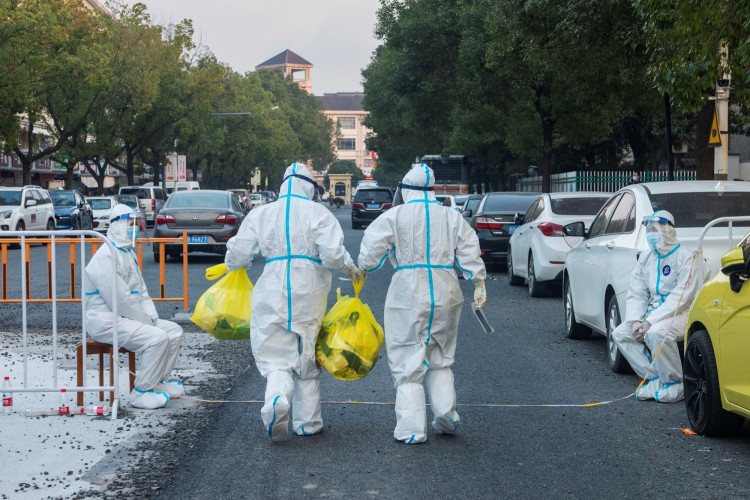In a devastating new report, the International Federation of Red Cross and Red Crescent Societies (IFRC) warned that the world is "dangerously unprepared" for future pandemics.
According to the most recent data from Johns Hopkins University, more than 6.8 million people have died from COVID-19 since the epidemic began in early 2020.
The IFRC says this is more deaths than any other earthquake, drought, or storm in recorded history.
The humanitarian relief group claimed in its World Disasters Report released Monday that "many countries" were not prepared for COVID-19 and that "all countries remain dangerously unprepared for future outbreaks".
The IFRC warned about not only disease outbreaks but also climate- and weather-related calamities, saying that nations "need to start preparing now, because our world is becoming increasingly hazardous"
"The COVID-19 pandemic should be a wake-up call for the global community to prepare now for the next health crisis," Jagan Chapagain, the IFRC's secretary general, said in a statement.
"The next pandemic could be just around the corner; if the experience of COVID-19 won't quicken our steps toward preparedness, what will?" he posited.
The world's largest disaster response network stated in the study that by the end of this year, every country should have updated plans for pandemic preparedness and "should have reviewed the relevant legislation to see if it too needs updating".
Pandemic preparedness plans, the report says, "should include concrete measures to strengthen equity, trust, and local action".
According to the report, all countries should ratify a new treaty and revised International Health Regulations by 2024.
The report also advises that by 2025, countries raise domestic health finance by 1% of GDP and global health finance by at least $15 billion per year.
"While COVID-19 was a new virus that presented new challenges, there are countless common measures and approaches that could have mitigated the pandemic's impacts," Chapagain said in the report.
"Notably, governments could have made far greater investment in emergency preparedness at the community level."
"To ensure that we do not repeat the same mistakes, the critical lessons from this pandemic must be embedded into national laws, policies, budgets and actions," he continued.
The report ends by urging global leaders to focus on fostering trust, addressing inequality, and utilizing local players and communities to carry out life-saving work.





